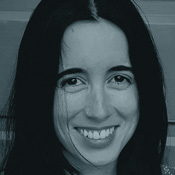AvantShield protects personal health information (PHI) through data anonymization.
At Avantpage, we partner with health organizations around the country to improve patient care and health outcomes through translation and language access. Our national, state, and community health plans rely on us for data security. Keeping them in compliance and protecting personal health information (PHI) is our priority.
That’s why, in 2019, our Systems Team developed a custom data anonymization tool that we call AvantShield. Using AvantShield protects member PHI during translation and allows organizations to safely reap the numerous benefits of translation memory (TM).
Translation Memory – a Recap
Using a TM for your translation work means that Avantpage saves every segment of approved translation delivered to your team. Next time you request a project, the file is run through our TM system and any repeated or similar text is instantly identified. Reusing previously-translated segments saves time, increases consistency, and reduces cost. What is Translation Memory?
What does PHI have to do with Translation Memory?
In accordance with HIPAA regulations, Avantpage does not store PHI in our systems. But the kinds of files that typically contain PHI, such as member letters, are highly repetitive. This makes them great candidates for leveraging a TM. To exclude these files from a translation memory database would be a lost opportunity for process and cost optimization. This is where AvantShield comes in.
AvantShield – PHI Masking
AvantShield identifies the PHI contained within a file before it goes to our translation teams. Identified text is replaced by a tag that shows linguists the type of data that has been hidden. For example, a medical record number is replaced by @MRN@, the name of the member by @patient_name@, and so on. This greatly aids a translator by ensuring context is not lost during the masking phase. Once the macro has completed its task, the file is sent to translators through AvantFlow. After translated segments are approved by our editors and proofreaders, the text is exported to its original format (Word, Excel, etc.) for delivery to the client. During this final stage, the previously-masked PHI is restored by AvantShield so that the translated document contains the information needed for member communication.
AvantShield – PHI Destruction
While this is similar to the process above, PHI destruction happens after projects are closed and submitted to the client. This is the point at which translations are saved in the translation memory. Before being saved for reuse, AvantShield is applied to identify PHI, this time for permanent removal. To preserve context for future reference, tags are used in the same way as above. The personal data removed during this stage cannot be restored and the translation memory is considered “clean” and ready for use.
Consolidating Translation Memories
If you are working with multiple translation vendors, chances are they each have a translation memory. In order to maximize the use of these tools, it is recommended to consolidate the translation memories at regular intervals. Avantpage provides this monthly service to our national health plans, and data anonymization is an important part of the process. During the consolidation, AvantShield verifies that no PHI remains in any of the vendors’ databases. A clean, secure TM is returned to all vendors for use in the coming month.
Why use AvantShield?
The primary reason to use AvantShield is to protect PHI. Our linguists are able to perform in-context, culturally-appropriate translations without ever viewing personal data. Before we created AvantShield, some of our clients chose to manually remove PHI from files before sharing with us. This is time-consuming, error-prone, and unnecessary. AvantShield helps you stay HIPAA compliant without losing time on manual tasks. With a clean translation memory, you continue to increase consistency, shorten delivery cycles, and save money, safe in the knowledge that your member data is 100% secure.

Joanna oversees sales growth by ensuring that our clients receive excellent customer service and dedicated account management. She has always had a passion for languages, and believes that language access is a fundamental right. Over the last ten years, Joanna has worked in many different aspects of the translation industry, and brings this varied experience to Avantpage’s clients and partners. But she’s other things too! Joanna is an avid film-lover and board member of the Sacramento French Film Festival. She enjoys traveling, reading, and playing the piano – all in between remodel projects in her Victorian home.
